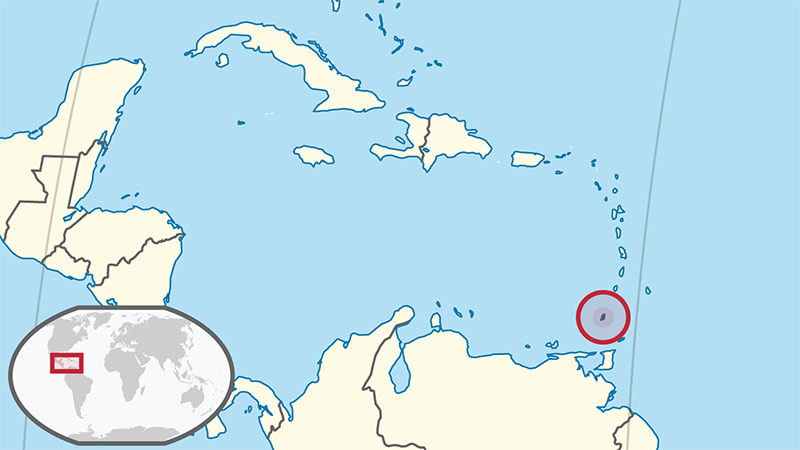
- Population:
- 117,000
- Religion:
- Christianity
Grenada was colonized by the French and later the British, gaining independence in 1974. A U.S.-led intervention in 1983 restored stability after a period of political turmoil. Today, the country relies on tourism, agriculture, and nutmeg exports for economic growth.
Grenada is an island country in the Caribbean Sea, consisting of the main island of Grenada and six smaller islands at the southern end of the Grenadines island chain. It is located northwest of Trinidad and Tobago, northeast of Venezuela, and southwest of Saint Vincent and the Grenadines. Covering a total area of approximately 348.5 square kilometers, Grenada has a population of about 112,000 people as of 2023. The capital and largest city is St. George's. The official language is English, with Grenadian Creole English and Grenadian Creole French also spoken. Grenada operates as a parliamentary representative democracy and constitutional monarchy, with the British monarch as head of state, represented locally by a Governor-General. The economy is primarily based on tourism, agriculture, and services. Grenada is known as the "Island of Spice" due to its significant production of nutmeg and mace. The country is a member of the United Nations, the Commonwealth of Nations, and the Caribbean Community.





